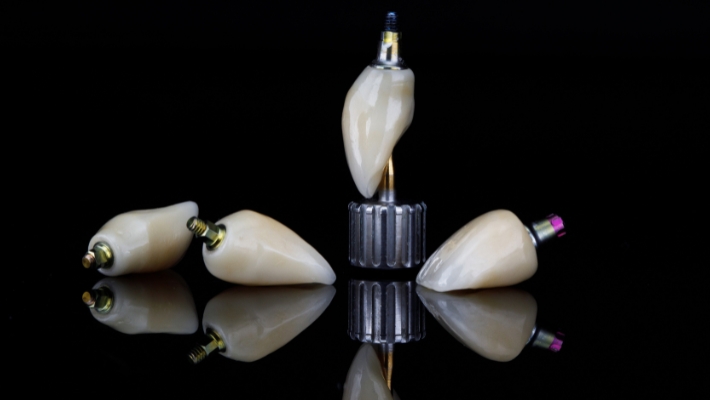
Dental implants have become a solution of choice to replace missing or damaged teeth. Not only do they offer an aesthetic and functional alternative to traditional dentures, but they also play a crucial role in preserving overall oral health.
A dental implant is a titanium structure that is surgically inserted into the jawbone to replace the root of a missing tooth. Once in place, the implant integrates with the surrounding bone tissue in a process called osseointegration. After this healing period, an artificial crown is attached to the implant, providing the appearance and function of a natural tooth.
Bone preservation
One of the most significant benefits of dental implants is their ability to prevent bone resorption that occurs naturally after tooth loss. Unlike bridges or removable dentures, implants stimulate and maintain the jawbone, which helps preserve its structure and density.
Improved functionality
Implants allow for more natural chewing and speaking compared to removable dentures. They do not slip or require adhesive glue, providing patients with greater confidence when eating or speaking.
Sustainability
With proper care, dental implants can last a lifetime. They are designed to be a long-term solution, making them cost-effective in the long run.
Health of adjacent teeth
Implants do not require grinding or alteration of adjacent teeth, as is the case with dental bridges. This preserves the integrity of the remaining natural teeth.
Investing in dental implants is a wise choice for anyone looking to restore their teeth while protecting their long-term oral health. By choosing this modern and durable option, you benefit not only from an aesthetic smile but also from optimal functionality and a better quality of life.